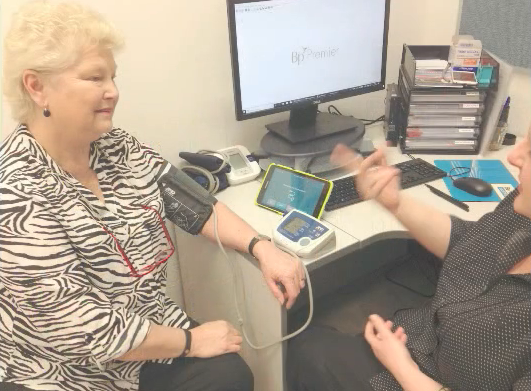A South Australian trial of telemonitoring technology to help prevent avoidable hospital admissions and emergency department presentations in elderly people living at home may be extended to other regional parts of SA.
The trial of over 300 older people in the Riverland Mallee Corrong region found early intervention through home telemonitoring prevented 53 admissions or emergency presentations in a six-month period.
SA Health is now exploring options to determine whether the initiative could expand to other regional areas, an SA Health spokeswoman told Pulse+IT.
The State Action on Avoidable Rehospitalisations and Unplanned Admissions (STAAR-SA) project aims to deliver innovative and improved pathways of care for older South Australians, bringing together health and aged care experts and practitioners with consumers to develop models that improve outcomes and reduce avoidable hospitalisations.
As part of STAAR-SA’s quality improvement collaborative, SA Health’s Rural Support Service (RSS) piloted a six-month project in partnership with the Riverland Mallee Coorong Local Health Network (RMCLHN).
RMCLHN supports about 70,000 people in 15 towns and surrounds in the Riverland, Murray River, Lakes and Coorong areas and is the largest provider of home care packages in regional SA, helping more than 300 older people remain in their homes by providing health, domestic and social support.
The trial involved aged care assessment teams, community support workers for home care packages and the RSS Virtual Clinical Care Home Telemonitoring Service, aiming to test whether adding remote telemonitoring reduced unplanned emergency presentations and admissions for at-risk older people living at home.
The trial found that early intervention through home telemonitoring prevented 31 emergency department presentations and 22 hospital admissions between January and June 2021, mainly by improving networking among local hospitals, doctors and staff in these services.
OLDER PEOPLE AT RISK
RSS manager of service initiatives Andrea Church said many of the frailest people were dealing with co-morbidities including diabetes, arthritis, asthma, emphysema, heart failure and other cardiac conditions.
“They can have between 10 and 20 medications to manage and they all live in different household circumstances, many living alone, so their health issues can be daunting and stressful,” Ms Church said.
“The telemonitoring service proved invaluable in helping to assess and triage consumer needs, whether that be changes to medications prescribed, referrals to allied health professionals, recommending dietary improvements or liaising with often over-stretched GP practices to ensure consumers at risk of hospitalisation are prioritised.”
The positive outcomes resulted from boosting the capacity of home care packages’ community support workers to identify older people at greatest risk of decline using the AWACCS instrument to measure activities of daily living, weight and nutrition, awareness, condition, cognition and social engagement.
The most vulnerable older people with complex health problems were then referred to the telemonitoring service, which provided in-home tools to record daily health statistics that could be remotely monitored by specialist nursing staff.
Those with chronic disease including respiratory or cardiac disease, diabetes and blood pressure- related conditions received equipment to monitor their condition including a Samsung tablet, BP monitor, pulse oximeter, electronic weight scales, glucometer and thermometer.
DATABASE DISPLAYS SYMPTOMS AND RESULTS
The Virtual Clinical Care (VCC) Home Telemonitoring Service is managed by nurses with expertise in chronic disease care working remotely across country South Australia, using phone and video calls to assess and treat patients, the SA Health spokeswoman said.
“VCC nurses manage the data from a dashboard style database that displays client symptoms and results, including charting, history, records, medications and action plans,” she said.
“The data is monitored using a traffic light system and triaged accordingly with clinicians’ support.”
Patients’ vital signs are entered into a tablet computer and sent via mobile network to the secure database managed by the Integrated Cardiovascular Clinical Network (ICCnet SA).
ICCnet SA is a free 24/7 remote health monitoring service provided throughout rural and regional SA.
STAAR-SA is funded by a Medical Research Future Fund Rapid Applied Research Translation grant facilitated by Health Translation SA.

